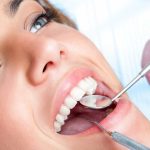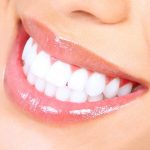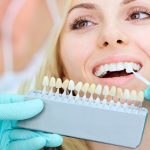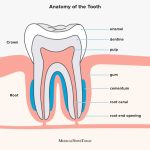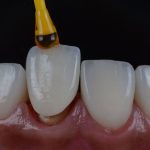Why Do Teeth Hurt at Night? Causes and Remedies for Nocturnal Tooth Pain
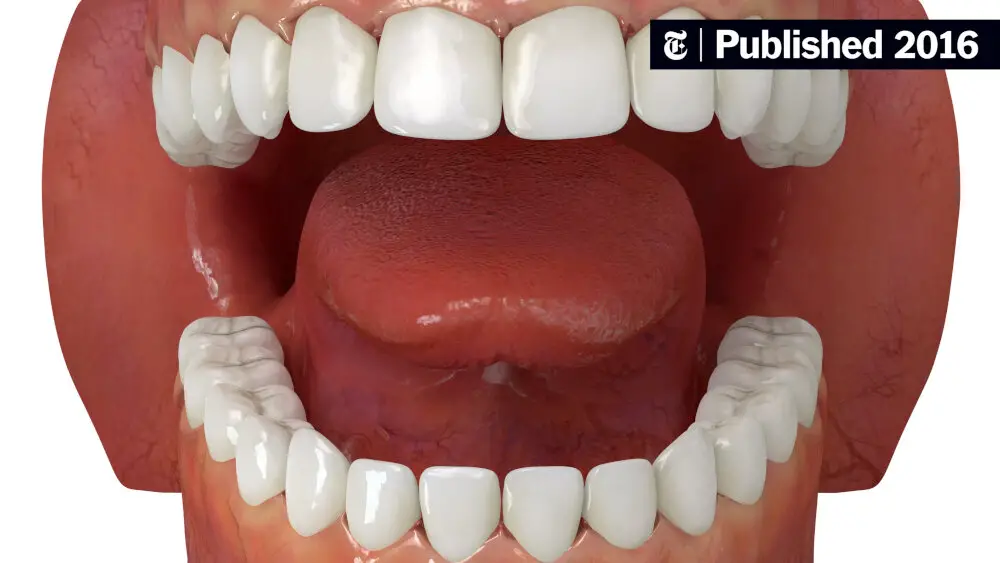
H1 tags are usually reserved for the most important title on a webpage, and in this case, it’s a topic that affects millions of people worldwide – Why Do Teeth Hurt at Night? It’s an issue that can cause sleepless nights, discomfort, and even anxiety for those who suffer from it. Nocturnal tooth pain can be caused by a variety of factors, and it’s essential to understand what’s causing your discomfort to find an effective remedy. While it’s not uncommon to experience tooth pain during the day, many people find that their symptoms worsen at night. This can be due to a variety of reasons, such as grinding or clenching your teeth while you sleep, which puts pressure on your teeth and causes pain. Alternatively, it could be due to an underlying dental issue that only becomes apparent when you’re lying down. Whatever the cause, the good news is that there are remedies available to alleviate your discomfort and help you get a good night’s sleep. In this article, we’ll explore the causes of nocturnal tooth pain and provide some tips on how to manage it effectively.
Nocturnal tooth pain can be a distressing experience that disrupts sleep and daily activities. It is a common dental problem that affects many people, regardless of age, gender, or dental health. The pain can be caused by various factors, such as tooth decay, gum disease, teeth grinding, and sensitivity. Teeth grinding, also known as bruxism, is a common cause of nocturnal tooth pain, which can result in tooth damage, jaw pain, and headaches. Other factors that can contribute to nocturnal tooth pain include stress, poor sleep habits, and certain medications. However, there are several remedies that can help alleviate the pain, such as practicing good oral hygiene, using a mouthguard, and taking over-the-counter pain relievers.
Understanding the causes and remedies for nocturnal tooth pain is crucial in maintaining good oral health and overall well-being. Nocturnal tooth pain can be caused by a variety of factors, including bruxism, tooth decay, gum disease, and temporomandibular joint (TMJ) disorder. Identifying the underlying cause of the pain is the first step in finding an effective remedy. Ignoring the pain can lead to further damage and may even require invasive dental procedures. Remedies for nocturnal tooth pain range from simple home remedies such as warm saltwater rinses and over-the-counter pain relievers to more advanced treatments such as dental restorations and orthodontic appliances. Seeking prompt dental care and adopting good oral hygiene practices can help prevent nocturnal tooth pain and maintain a healthy smile.
Causes of Nocturnal Tooth Pain
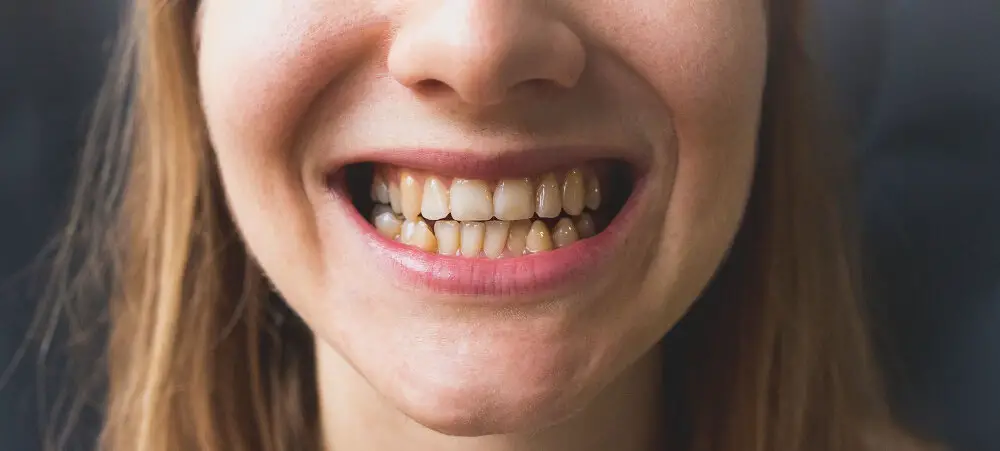
Nocturnal tooth pain can be a miserable experience that leaves you feeling exhausted and irritable. There are several causes of nocturnal tooth pain, each requiring different remedies. One common cause of tooth pain at night is bruxism, or teeth grinding. This condition is often caused by stress or anxiety, and it can result in headaches, jaw pain, and tooth sensitivity. If you suspect that you may be grinding your teeth at night, it is important to speak to your dentist. They can provide you with a custom-fitted mouthguard to wear while you sleep, which can help to protect your teeth from the damage caused by bruxism. Another cause of nocturnal tooth pain is tooth decay. If you have a cavity, it can be incredibly painful, especially at night when you are lying down. The pain may be sharp or throbbing, and it may be accompanied by a fever or swelling. If you suspect that you have a cavity, it is important to see your dentist as soon as possible. They can fill the cavity or perform a root canal if the decay has reached the pulp of the tooth. In some cases, a tooth may need to be extracted if the decay is too severe.
Grinding teeth, also known as bruxism, can be a painful and damaging habit that often occurs at night. This condition can cause a variety of symptoms, including headaches, jaw pain, and tooth sensitivity. Bruxism can result from a variety of causes, including stress, anxiety, and sleep disorders. It can also be caused by an abnormal bite or missing or crooked teeth. Remedies for bruxism include relaxation techniques, mouth guards, and dental treatments such as orthodontics or restorative procedures. It is important to seek treatment for bruxism as it can lead to severe tooth damage and even tooth loss if left untreated.
Dental problems such as cavities, gum disease, and abscesses can cause excruciating pain during the night, making it impossible to sleep. Cavities, also known as tooth decay, occur when bacteria in the mouth produce acid that erodes the tooth’s enamel. Gum disease, which is caused by a buildup of plaque and tartar on the teeth, can lead to inflammation and infection of the gums, causing discomfort and pain. Abscesses are pockets of pus that form at the base of the tooth, resulting from an infection that has spread to the root. They can cause severe pain, swelling, and fever. If left untreated, these dental problems can worsen and potentially cause tooth loss, highlighting the importance of regular dental checkups and proper oral hygiene.
Sinus problems are a common cause of nocturnal tooth pain. The sinuses are air-filled cavities located in the skull, and when they become inflamed or infected, it can cause pain and pressure in the face and teeth. This pain is often worse at night when lying down, as the sinuses can become more congested due to the effect of gravity. Sinus problems can be caused by a variety of factors, including allergies, infection, and structural issues in the nasal passages. Treatment for sinus problems may include over-the-counter or prescription medications, nasal irrigation, or surgery in severe cases. If you suspect that your tooth pain is caused by sinus problems, it’s important to see a healthcare provider for an accurate diagnosis and appropriate treatment.
Temporomandibular joint disorder, commonly known as TMJ, is a condition that affects the jaw joint and muscles responsible for controlling the movement of the jaw. It is a painful and often debilitating condition that can cause difficulty in speaking, eating, and even sleeping. The exact cause of TMJ is not known, but it is believed to be the result of a variety of factors, including stress, teeth grinding, misaligned teeth, and injury to the jaw. Symptoms of TMJ include pain or tenderness in the jaw, difficulty opening or closing the mouth, clicking or popping sounds when opening or closing the mouth, and headaches. Treatment options for TMJ include stress management techniques, dental treatment to correct misaligned teeth, and the use of oral appliances to alleviate symptoms.
Stress and anxiety are common factors that can lead to nocturnal tooth pain. When we experience stress or anxiety, our bodies release hormones that can cause physical symptoms such as teeth grinding or clenching. This can put pressure on our teeth and jaw, leading to pain and discomfort. Additionally, stress and anxiety can disrupt our sleep, causing us to toss and turn throughout the night, which can exacerbate any existing tooth pain. To manage stress and anxiety, it’s important to practice relaxation techniques such as deep breathing, meditation, or yoga. Seeking support from a therapist or counselor can also be helpful in managing these conditions.
Remedies for Nocturnal Tooth Pain
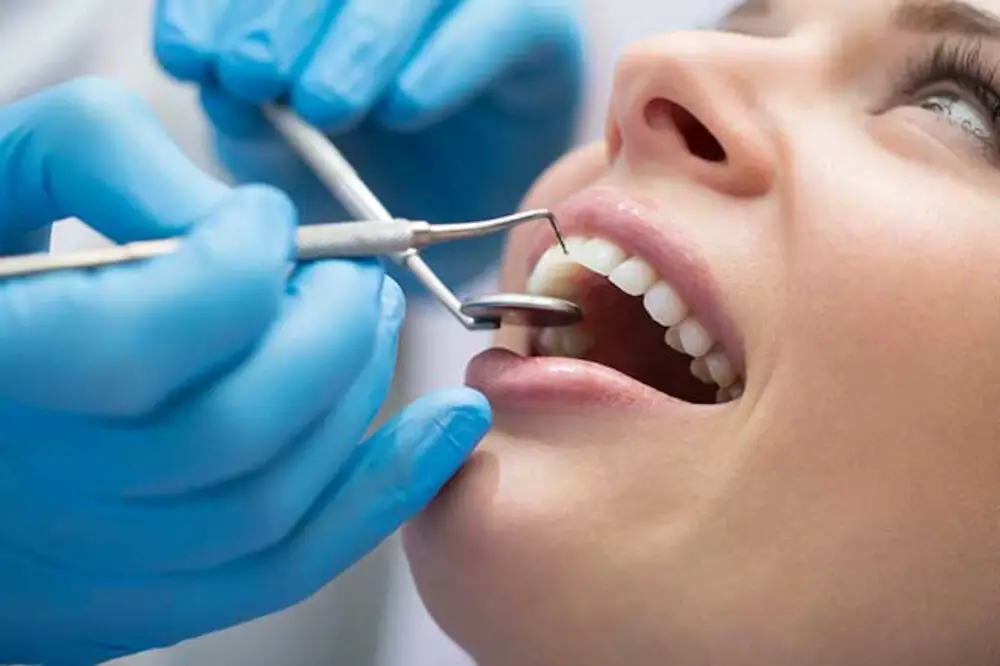
Nocturnal tooth pain can be a frustrating and uncomfortable experience. It can disrupt your sleep and affect your daily routine. There are several remedies that can help relieve the pain and discomfort associated with nocturnal tooth pain. One of the most effective remedies is to apply a cold compress to the affected area. This can help to reduce swelling and inflammation, and relieve pain. You can use a cold pack or a bag of ice wrapped in a towel, and apply it to the affected area for 10-15 minutes at a time. This can be repeated several times a day, as needed. Another effective remedy for nocturnal tooth pain is to rinse your mouth with warm salt water. Salt water can help to reduce inflammation and soothe the gums. To make the solution, mix a teaspoon of salt in a glass of warm water and swish it around your mouth for 30 seconds before spitting it out. You can repeat this several times a day, especially before going to bed. Additionally, over-the-counter pain medications such as ibuprofen or acetaminophen can help to relieve pain and inflammation. However, it is important to follow the recommended dosage and consult with a dentist if the pain persists.
Over-the-counter pain relievers are medications that can be purchased without a prescription from a healthcare provider. These pain relievers are commonly used for various types of pain, including toothaches. Over-the-counter pain relievers for toothaches include acetaminophen, ibuprofen, and aspirin. These medications work by reducing inflammation and blocking pain signals in the body. While these medications can provide temporary relief for tooth pain, it is important to speak with a dentist if the pain persists or worsens. Additionally, it is important to follow the recommended dosage and precautions for these medications to avoid potential side effects.
Applying heat or cold to the affected area is a common remedy for tooth pain, especially when it’s caused by inflammation. Heat can help to increase blood flow to the sore area, bringing with it oxygen and nutrients to promote healing. Cold, on the other hand, can help to reduce inflammation and numb the area, providing temporary pain relief. It’s important to note that the choice between heat or cold may depend on the cause of the pain, and it’s always best to consult with a dentist before trying any home remedies. Additionally, it’s important not to apply extreme temperatures to the affected area, as this can cause further damage to already sensitive teeth.
Practicing good oral hygiene is essential for maintaining healthy teeth and gums. This includes brushing twice a day with fluoride toothpaste, flossing daily, and using mouthwash to kill bacteria. Additionally, it’s important to visit the dentist regularly for check-ups and cleanings. Poor oral hygiene can lead to a buildup of plaque and bacteria, which can cause tooth decay, gum disease, and ultimately, tooth pain. By taking care of your teeth and gums, you can prevent nocturnal tooth pain and enjoy a healthy, pain-free smile.
Teeth grinding, also known as bruxism, is a common problem that can cause nocturnal tooth pain. It can happen due to stress, anxiety or sleep disorders. One way to prevent teeth grinding and protect your teeth is by using a mouthguard. A mouthguard is a custom-made device that fits over your teeth and creates a barrier between the upper and lower jaws. It prevents the teeth from grinding against each other, thus reducing the risk of tooth damage and pain. Mouthguards are available in different types and materials, including soft and hard plastic, and can be obtained through a dentist or purchased over-the-counter. Wearing a mouthguard while sleeping can be an effective solution to prevent teeth grinding and alleviate nocturnal tooth pain.
When it comes to nocturnal tooth pain, addressing underlying dental or medical issues is of utmost importance. Tooth pain at night can be a sign of a more significant problem, such as tooth decay or gum disease, and leaving these issues untreated can cause more severe problems down the road. Identifying and treating the root cause of the tooth pain is essential to alleviating the discomfort and preventing it from occurring in the future. Dental issues, such as cavities or infections, can be treated with fillings, root canals, or extractions, while medical problems, such as sinus infections or bruxism, may require medication or other forms of treatment. By addressing the underlying issues, individuals can enjoy a good night’s sleep free from tooth pain.
Lifestyle Changes to Reduce Nocturnal Tooth Pain
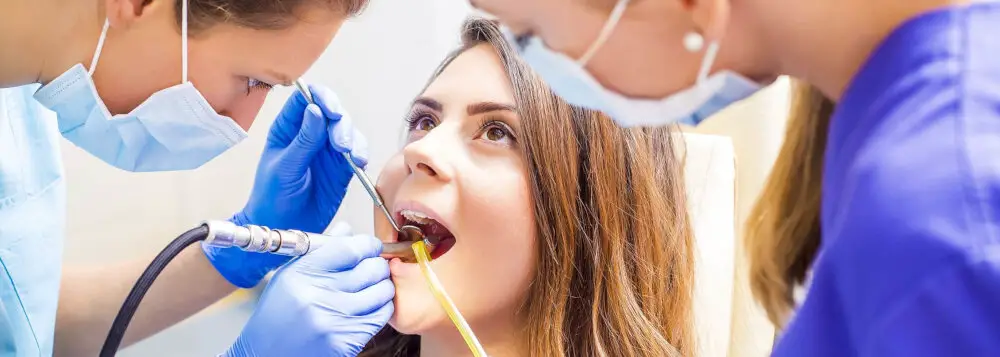
Nocturnal tooth pain can be a source of discomfort and distress for many individuals. Fortunately, there are several lifestyle changes that can help to reduce this type of pain. One of the most effective ways to reduce nocturnal tooth pain is to practice good oral hygiene. This involves brushing and flossing regularly, as well as visiting the dentist for routine cleanings and checkups. By keeping the teeth and gums healthy, individuals can reduce the risk of developing tooth decay, gum disease, and other oral health problems that can cause pain and discomfort. Another lifestyle change that can help to reduce nocturnal tooth pain is to avoid consuming certain foods and beverages before bedtime. This includes sugary and acidic foods, as well as caffeine and alcohol. These substances can cause irritation and inflammation in the mouth, leading to discomfort and pain. Instead, individuals should opt for water or herbal tea before bedtime. Additionally, using a mouthguard can help to protect the teeth and reduce the risk of grinding or clenching, which can also cause nocturnal tooth pain. By making these lifestyle changes, individuals can reduce the frequency and severity of nocturnal tooth pain, leading to a better night’s sleep and improved overall oral health.
It’s no secret that stress and anxiety can wreak havoc on our bodies, including our teeth. If you’re experiencing nocturnal tooth pain, it may be beneficial to explore stress-reducing techniques such as meditation, yoga, or exercise. Additionally, practicing good sleep hygiene and avoiding caffeine and alcohol before bedtime can help promote a more restful night’s sleep, which can also alleviate stress levels. Don’t forget to prioritize self-care and seek support from loved ones or a mental health professional if needed. By taking care of your mental and emotional well-being, you may find that your tooth pain subsides as well.
It is highly recommended to avoid consuming caffeine and alcohol before bed if you are experiencing nocturnal tooth pain. Caffeine is a stimulant that can interfere with the quality of sleep, making it difficult to fall asleep and stay asleep. Additionally, it can cause teeth grinding, which can worsen tooth pain. On the other hand, alcohol can cause dehydration and disrupt the sleep cycle, leading to a restless night’s sleep. By abstaining from these substances before bed, you can improve your chances of getting a good night’s sleep and reduce the likelihood of exacerbating your nocturnal tooth pain.
Maintaining a healthy diet and exercise routine is crucial not only for overall health but also for oral health. A diet rich in vitamins and minerals, such as calcium and vitamin D, can help keep teeth and bones strong. Exercise can also improve oral health by increasing blood flow to the gums and reducing inflammation. Along with a healthy diet and exercise, good oral hygiene practices, such as brushing and flossing regularly, can help prevent tooth pain and other oral health issues. Incorporating these habits into a daily routine can lead to a healthier and happier life, free from nocturnal tooth pain.
Getting enough sleep is crucial for maintaining good health and preventing tooth pain at night. Sleep allows the body to repair and regenerate, which is important for maintaining healthy teeth and gums. Lack of sleep can weaken the immune system and increase the risk of tooth decay and gum disease. Additionally, grinding teeth at night, also known as bruxism, is often linked to stress and anxiety, which can be exacerbated by sleep deprivation. To ensure a good night’s rest, it is recommended to establish a regular sleep routine, minimize caffeine and alcohol consumption, and create a comfortable sleep environment. By prioritizing sleep, individuals can not only prevent nocturnal tooth pain but also improve their overall health and well-being.
When to Seek Professional Help
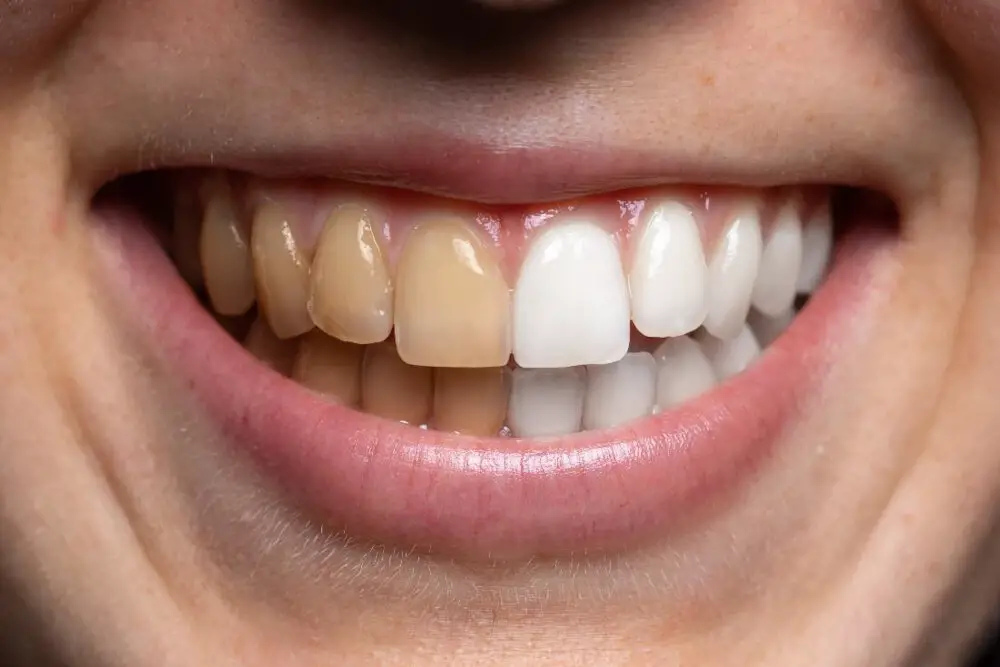
If you are experiencing persistent tooth pain at night, it is important to seek professional help. Pain in your teeth can be a sign of a variety of dental issues, such as cavities, gum disease, or dental abscesses. Without proper treatment, these issues can worsen and cause more severe pain and damage to your teeth. Additionally, tooth pain can also be a symptom of other health issues, such as sinus infections or temporomandibular joint disorder (TMJ). A dental professional can examine your teeth and determine the underlying cause of your pain, as well as provide appropriate treatment to alleviate your discomfort and prevent further damage. It is also important to seek professional help if your tooth pain is accompanied by other symptoms, such as swelling, fever, or difficulty swallowing. These symptoms can indicate a more serious issue, such as an infection, that requires immediate attention. Additionally, if you have a history of dental issues or have recently undergone dental procedures, it is important to monitor your dental health closely and seek professional help if you experience any unusual symptoms or discomfort. By seeking professional help promptly, you can ensure that your dental health is properly addressed and prevent further complications.
Severe or persistent tooth pain is a common dental issue that can cause immense discomfort and disrupt sleep patterns at night. The causes of tooth pain can vary from tooth decay, gum disease, tooth abscess, or even teeth grinding. The pain may be sharp and sudden or a dull ache that persists over time, making it difficult to determine the root cause. Ignoring tooth pain can lead to further complications, such as an infection or tooth loss. Therefore, seeking prompt dental care is crucial to alleviate the pain and prevent any further damage to your teeth and gums.
Swelling or fever accompanying tooth pain at night can be indicative of an underlying infection or inflammation. This can occur due to tooth decay, gum disease, or an abscessed tooth. The swelling may be localized to the affected tooth or spread to the surrounding areas, causing discomfort and difficulty in eating or speaking. Meanwhile, a fever may be present due to the body’s immune response to the infection. In such cases, seeking dental attention is crucial to prevent the spread of the infection and alleviate the associated symptoms. Antibiotics, pain relievers, and other treatments may be prescribed to address the underlying cause of the swelling and fever.
Difficulty opening or closing the mouth is a common symptom experienced by those suffering from nocturnal tooth pain. This discomfort can be caused by a variety of factors, such as bruxism, gum disease, or temporomandibular joint (TMJ) disorder. Bruxism, or teeth grinding, can cause muscle tension and soreness in the jaw, leading to difficulty opening and closing the mouth. Gum disease can also contribute to jaw pain, as inflammation and infection can affect the surrounding tissues and bone. Finally, TMJ disorder can result in pain and stiffness in the jaw joint, making it difficult to move the mouth. If you are experiencing difficulty opening or closing your mouth, it is important to speak with a dental professional to determine the underlying cause and receive appropriate treatment.
Signs of infection are important to recognize in order to treat the underlying problem. There are several signs that may indicate an infection including pain, redness, swelling, and warmth at the affected site. You may also notice a discharge or the presence of pus. Infections can occur as a result of injury, poor hygiene, or a weakened immune system. If left untreated, infections can spread and cause serious health complications. It is important to seek medical attention if you suspect an infection, as antibiotics or other treatments may be necessary to prevent further damage.
In conclusion, nocturnal tooth pain is a common dental issue that affects many people. The causes of this condition can range from teeth grinding to underlying medical conditions, and it is important to identify the root cause to properly treat the pain. Remedies for nocturnal tooth pain can include using a warm compress, practicing good oral hygiene, and wearing a mouthguard. If the pain persists, it is important to seek professional dental care to prevent further damage to the teeth and gums. It is also essential to maintain good dental habits to prevent tooth pain and maintain overall oral health.
It is crucial to seek professional help if you are experiencing tooth pain at night. Ignoring the problem can lead to severe consequences, including infection, which can spread to other parts of your body. A dental professional can diagnose the root cause of your pain and provide you with the appropriate treatment. They can also offer advice on how to prevent future occurrences. Additionally, seeking professional help can provide peace of mind and alleviate the anxiety that comes with dental pain. Don’t suffer in silence; make an appointment with your dentist today.
If you’re someone who experiences nocturnal tooth pain, it’s essential to take steps to prevent it from happening. Nocturnal tooth pain can be caused by a variety of factors, including grinding or clenching your teeth, tooth decay or infection, or even sinus issues. Whatever the cause may be, ignoring the pain can lead to further complications down the line. By taking proactive measures such as practicing good oral hygiene, wearing a mouthguard at night, and seeking treatment for any underlying dental issues, you can alleviate the discomfort of nocturnal tooth pain and improve your overall quality of life. Don’t let tooth pain keep you up at night – take action to prevent it today.
Conclusion
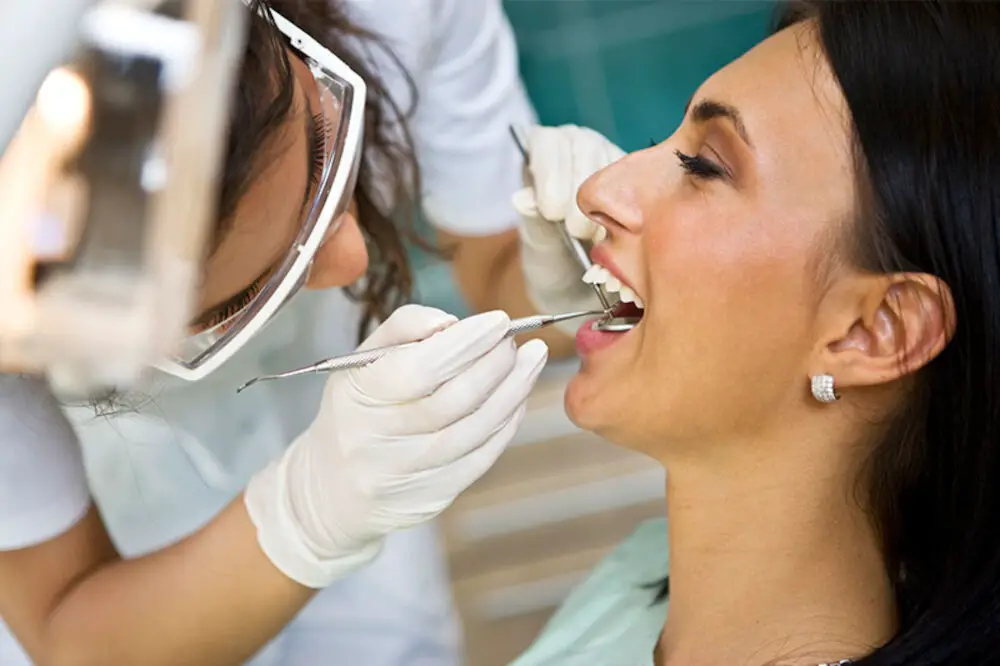
In conclusion, nocturnal tooth pain can be caused by a variety of factors such as teeth grinding, dental decay, gum disease, sinus problems, and even stress. It is important to identify the underlying cause of the pain in order to effectively treat it. Remedies for nocturnal tooth pain include over-the-counter pain relievers, warm saltwater rinses, avoiding caffeine and alcohol, using a mouthguard, and maintaining good oral hygiene habits. Consulting with a dentist is also recommended to ensure proper diagnosis and treatment. By taking steps to prevent and treat nocturnal tooth pain, individuals can improve their overall dental health and get a good night’s rest.
